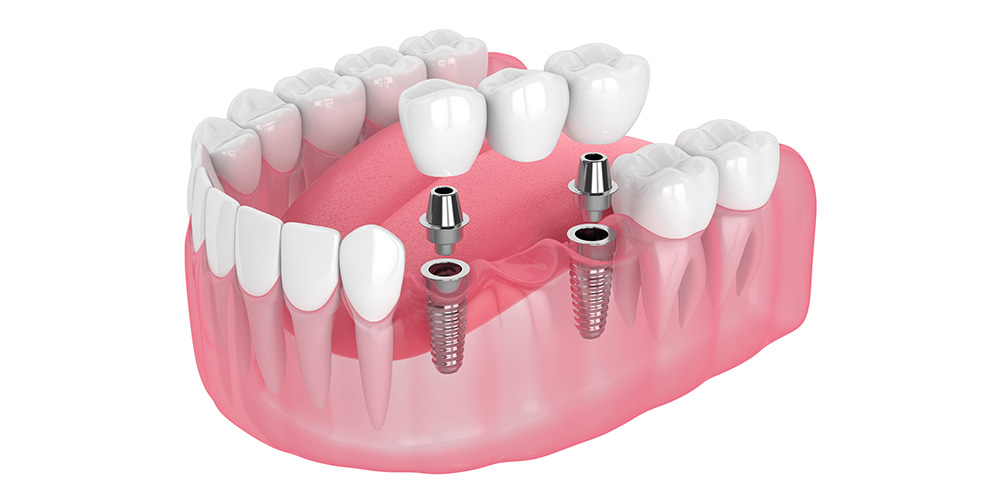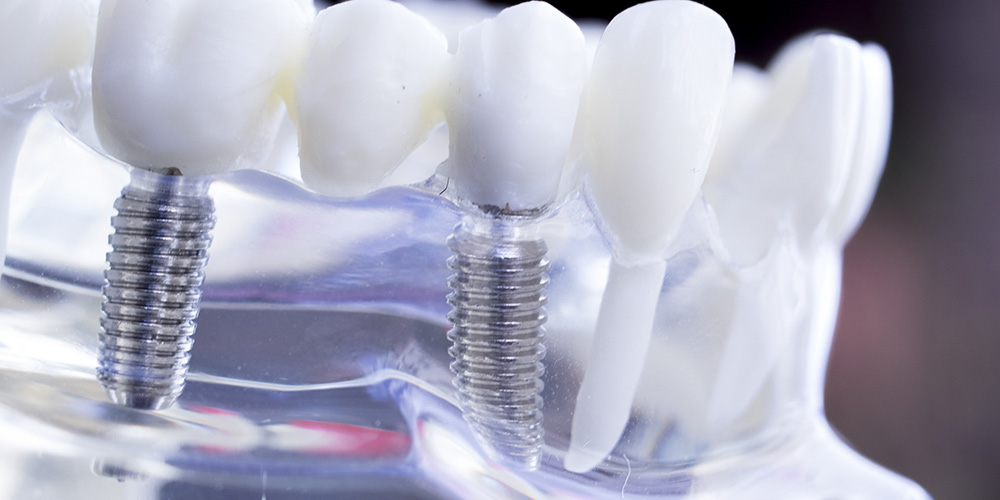
Dental implants are artificial tooth replacements used to counter tooth loss. The procedure is categorized as a form of prosthetic (artificial replacement) dentistry, though it also falls into the category of cosmetic dentistry as well.
Although you have a number of restorative options for the treatment of missing teeth, none have proven to be as functionally effective and durable as implants. In many cases, dental implants may be the only logical choice for the restoration of all necessary functionality of the teeth and supporting structures.
Strong, durable and natural in appearance, implants are among the most successful dental procedures performed. People who have lost teeth might feel too self-conscious to smile or talk. Additionally, biting irregularities caused by tooth loss can have a negative effect on eating habits and this can lead to secondary health problems like malnutrition. Regardless of the nature of problems related to tooth loss, dental implants may provide a simple remedy with proven results.
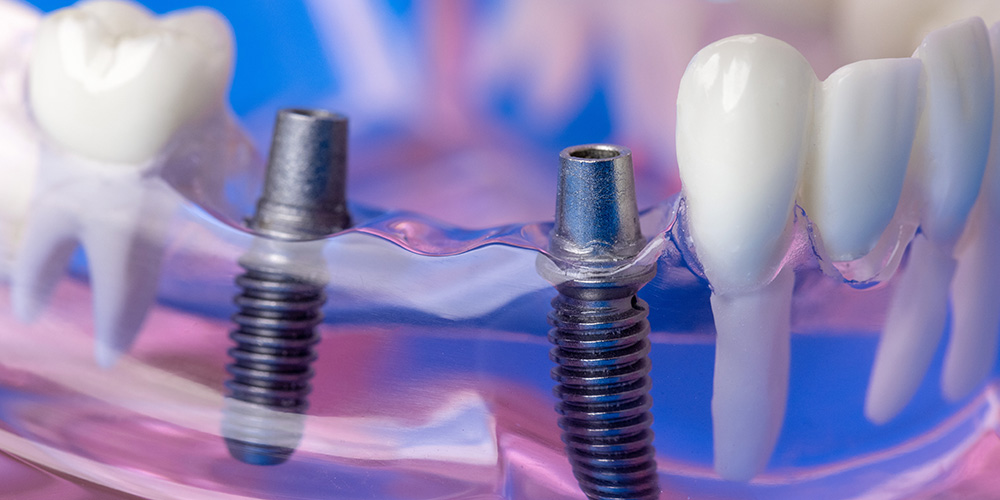
Advantages of Implant Dentistry
Dental implants are stronger and more durable than their restorative counterparts (bridges and dentures). Implants offer a permanent solution to tooth loss. Additionally, implants may be used in conjunction with other restorative procedures for maximum effectiveness. For example, a single implant can serve to support a crown replacing a single missing tooth. Implants can also be used to support a dental bridge for the replacement of multiple missing teeth, and can be used with dentures to increase stability and reduce gum tissue irritation.
- A Reliable Alternative
- Naturally replaces missing teeth
- Supports a single or full bridge
- Eliminates the need for a partial removable denture
- Helps prevent bone loss and gum recession
- Makes it easier to chew, eat, talk and smile!
- Fuses to living bone for that real tooth feel
- Makes dentures more comfortable and secure
- Eliminates messy denture glues and pastes
- Eliminates wrinkles on your face giving you a younger appearance
- Requires no adhesives, removals, soaking or cleaning
- Provides a reliable, long-term dental solution that can last a lifetime!
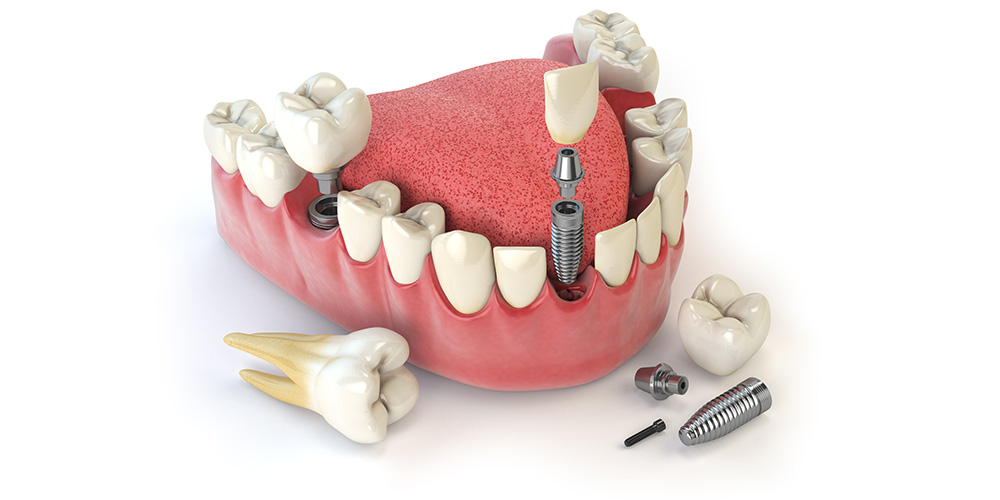
What is dental implant?
A dental implant is an artificial root piece made of titanium alloy that replaces our missing teeth.
Why implant?
Mobile dentures and bridges are available for the treatment of our missing teeth. However, dental implants are the closest to our own teeth.
Implant operation is painful ?
Implant treatment is done painlessly under local anesthesia such as filling, tooth extraction. No pain is felt during the procedure, but you can then comfortably follow the advice of your dentist.
Is suitable for all patients ?
No. Implant surgery cannot be performed in patients with a severe systemic disorder, in the presence of inflammation in the acute state, in patients with severe bleeding disorders after recent cardiac and vascular surgeries, in patients who have undergone active radiotherapy and chemotherapy without obtaining doctor's approval.
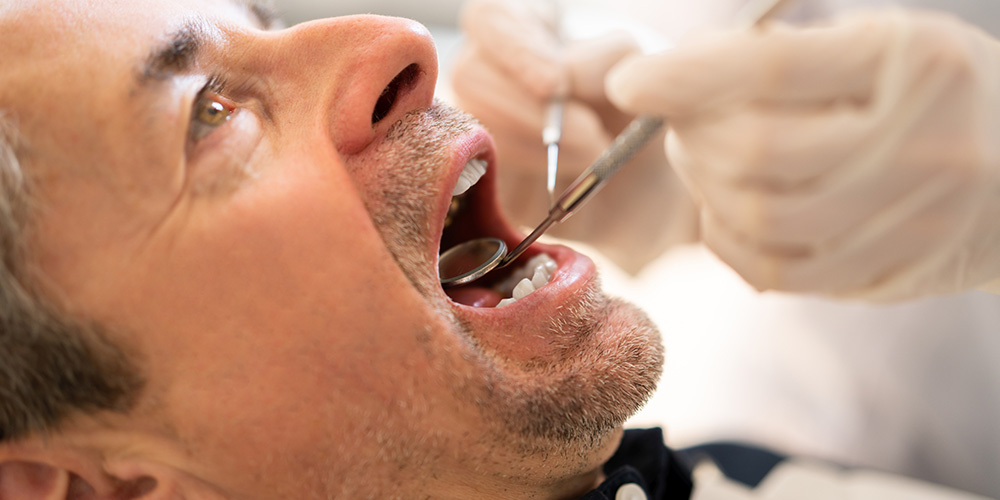
What is the advantages of implant ?
The biggest advantage is that it does not harm the neighboring natural teeth. In addition, the prosthesis on the implant is the closest treatment to the patient's own tooth. In addition, if the implant is made, bone loss due to toothlessness is prevented.
Am i feel pain after implant operation ?
If you follow the advice of your doctor and apply regular ice after the treatment, there will be as little swelling as possible. Severe pain is not usually seen after treatment.
How is the treatment process ?

After placing the implant, it is waited for 2-3 months. If performed with advanced surgeries, this period can be extended to 6 months.
Dental implant is harmful or allergic ?
The implants are made of titanium and are not harmful and are not allergic. It does not make resorption the jawbone if it is done properly, it prevents the bone loss on the contrary.
Dental implant are survives life-long ?
The life of dental implants is like your natural teeth. It can be used for life with good oral hygiene.
